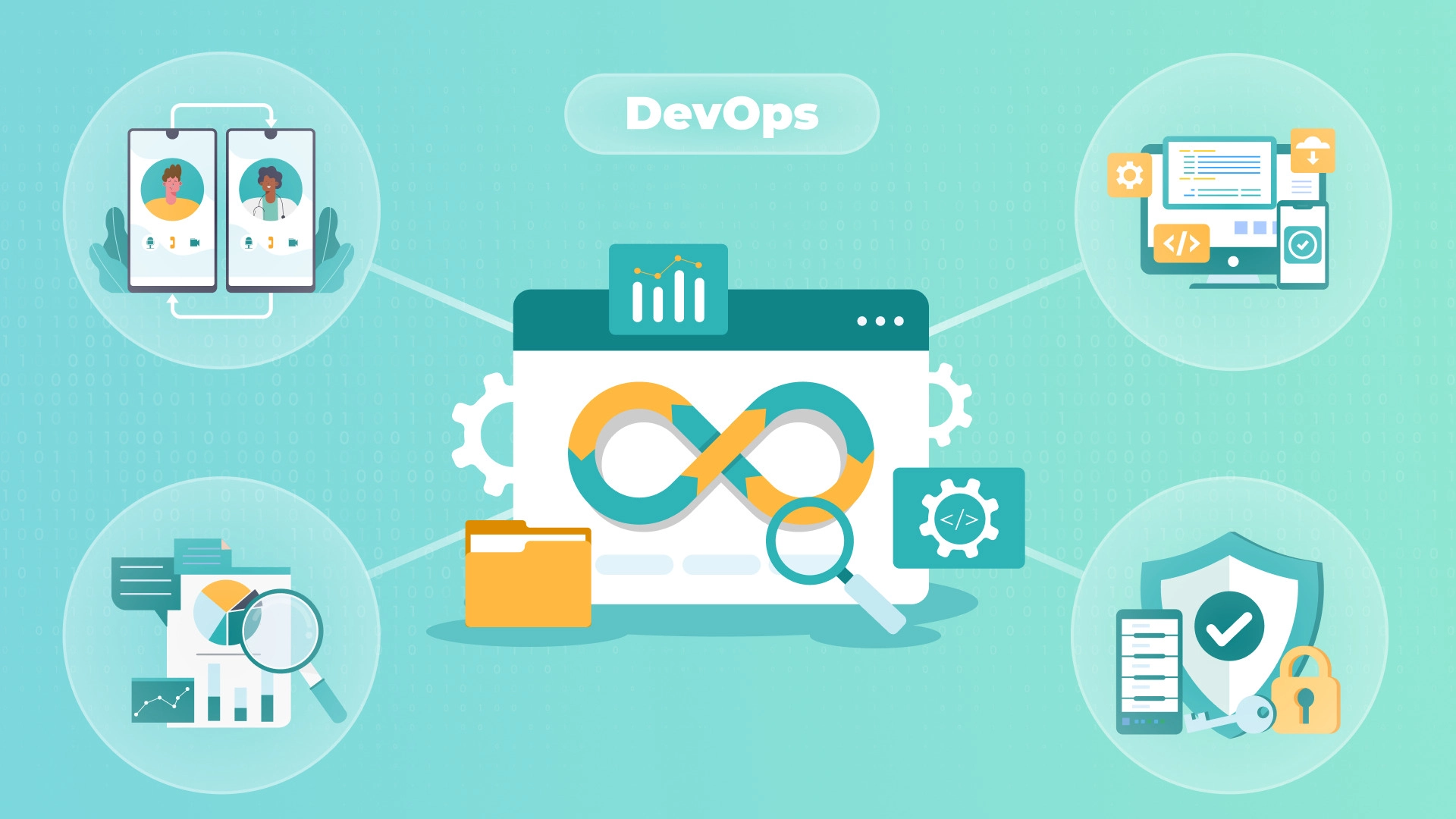

What Role does DevOps Play in Building Digital Health Solutions?
In the past few decades, the healthcare industry has achieved rapid development. The use of smart technologies for more flexible hospital management systems sets the pace for clinics. Information is the key to the healthcare industry. However, this information must comply with appropriate security protocols and be easily attainable. This is where DevOps can come in and help in gaining a competitive benefit via quick reactions, data-driven insights, and advanced caregiving.
According to a report from Redgate Software, 73% of global IT professionals in healthcare have now adopted DevOps.
DevOps has become very effective in the healthcare industry, especially with the influence of the pandemic. With a huge percentage of IT professionals in healthcare adopting DevOps, and with the spike in the number of remote work practices, patients desire digital access to healthcare services at ease.
Though it has its pros, some cons must be looked out for. One of them is security. Patient data collection is carefully automated at a fast pace with swift transmission, but what about security? What about the attacks? How can these incidents be avoided?
What Is DevSecOps & Why Is It Important in Healthcare?
With cybersecurity a constant concern in healthcare, there could be a concerted effort to establish a DevSecOps approach, which includes continuous security measurement. According to ThycoticCentrify, 57% of organizations suffered from a security incident related to exposures in DevOps.
The adoption of DevSecOps introduces the integration of software development, IT operations, and cybersecurity into a highly connected, continuously integrated system protected from hackers and ransomware attacks.
DevSecOps (Development, Security, and Operations) is a development approach that integrates security initiatives at every stage of the software development lifecycle to produce strong and safe applications. It infuses security into the continuous integration and continuous delivery (CI/CD) pipeline, letting manage some of today’s most pressing security challenges at DevOps speed. With the peak of more sophisticated cybersecurity attacks, DevSecOps is now evolving into a go-to practice for guaranteeing apps are secure in the modern development ecosystem.
By the names, it’s easy to suppose that DevSecOps is simply just DevOps with the addition of security, but no. DevSecOps is an iteration of DevOps: it has taken the DevOps model and covered security as an extra layer to the continual development. Instead of glancing at protection as an afterthought, DevSecOps works through in-app security early to strengthen the processes from a vulnerability mitigation outlook.
DevSecOps is becoming the must-have norm for application design in the healthcare area. As institutions are needed to abide by HIPAA, it’s obvious that a security-first approach greatly reduces the probability of patient PHI becoming disclosed or manipulated.
Why DevOps Is a Must in Healthcare
Since healthcare requires optimized solutions and fast turnarounds, DevOps is the way to go. Adopting it has many advantages, such as:

Improving Engagement
Healthcare companies that use CI/CD pipelines tend to deliver better features and solutions. Features such as self-check-in systems (that allow faster processing of patients) and electronic prescription filling (which enables patients to get medicines even if they aren’t at the premises) directly address patients’ needs for convenient and quality healthcare. Practitioners can also set up automatic appointments. This improves operational efficiency without compromising the quality of service.
Managing Data
A data-driven approach is a way to create cost-effective and responsive solutions. A data-based solution improves productivity and provides organizations with a competitive edge through insights. However, hospitals sometimes generate a large amount of data that can’t be processed through typical tools. DevOps toolchains help manage that data through data pipelines and big data applications. They enable healthcare providers to handle data such as lab reports, pharmacies, medical device reports, EHRs, wearables, and insurance claims and leverage them for final analysis.
Automating Development
DevOps processes allow healthcare providers to create better applications by integrating automation into their current systems. This helps them satisfy SLAs and effectively manage resources. In addition, standardized processes make sure that the deployment is smooth and features are released quickly.
Data Security and Regulatory Compliance
DevSecOps’s core principle, “infrastructure as code,” allows healthcare providers to integrate security fundamentals inside the application module. Vulnerability analysis is done along with pipeline implementations. This allows engineers to address all potential vulnerabilities at the time of development and deployment. In addition, the principle of “least privilege” is used to assign access, which means machines and people with the lowest level of privilege don’t get access to critical areas of the system.
DevOps Practices in Digital Healthcare
Continuous Development
This practice fully eliminates any manual steps and automates the entire process. Therefore, continuous deployment ensures that code is continuously being pushed into production, and there is much less risk of human error.
Continuous Testing
The shared repository is continuously tested to see whether it works or not. If the test yields positive results, it’s sent to the next phase. If the test fails or is inconclusive, the system tries to identify the error and runs it through its database.
This is done to check if the error is a known one. If it’s a new error, the system generates a report and creates an incident. This incident is assigned to the development team. They can thus track the issue through an incident tracker.
Continuous Integration (CI)
The CI server should commit all the system changes and new code modules into the central repository. This helps in cross-departmental code sharing and merging. Efficient code management also prevents delays.
Continuous Delivery
All product updates should be automatically arranged for release. It is the next stage after continuous integration: when all code changes pass the build stage, they are deployed to the testing environment.
Continuous Deployment (CD)
If the code tests right, it gets deployed onto the production system (or on the development system, depending on the company protocol). This ensures that code is deployed quickly and regularly.
Continuous Monitoring
Constant monitoring makes sure that the software performs at its optimum level. The system sends feedback to the development and operations team. If there’s an issue in the build, an immediate incident is raised and sent across in real-time. The system also maintains analytics to track incident counts.
Infrastructure as Code (IaC)
DevOps engineers help to manage all healthcare product infrastructure using code (configuration files) instead of manual operations. It enables optimized, timely, and consistent work with minimal human involvement.
Summing Up
A DevOps engineer as a developer and an administrator can be a game-changer in the healthcare sector. The specialist’s work can help medical companies provide better and safer care by reducing downtime and optimizing access to healthcare. The outcome is a highly efficient operating system and increased business profitability. The trend is catching on fast, and your healthcare organization stands to gain accelerated efficiency through the infrastructure provisioning and application deployment provided by DevOps.
Tell us about your project
Fill out the form or contact us

Thank you
Your submission is received and we will contact you soon
Follow us


